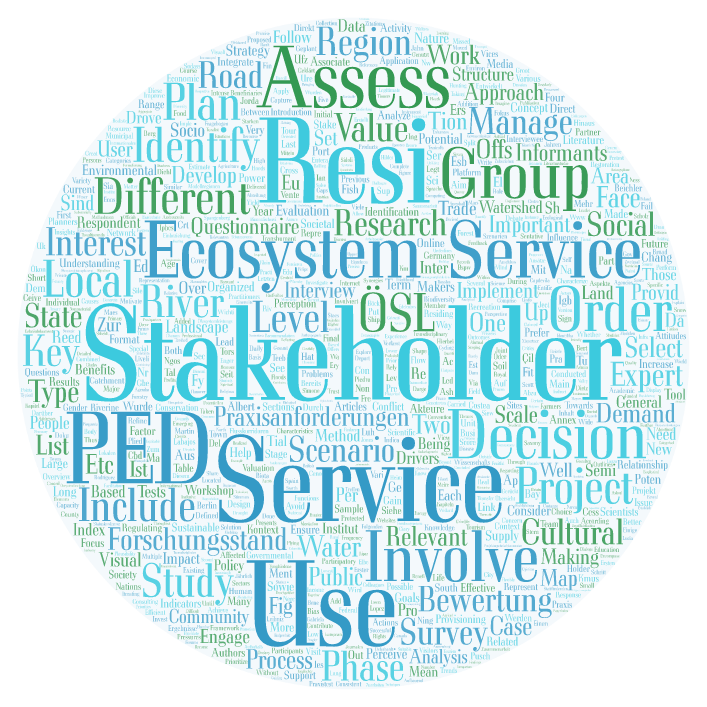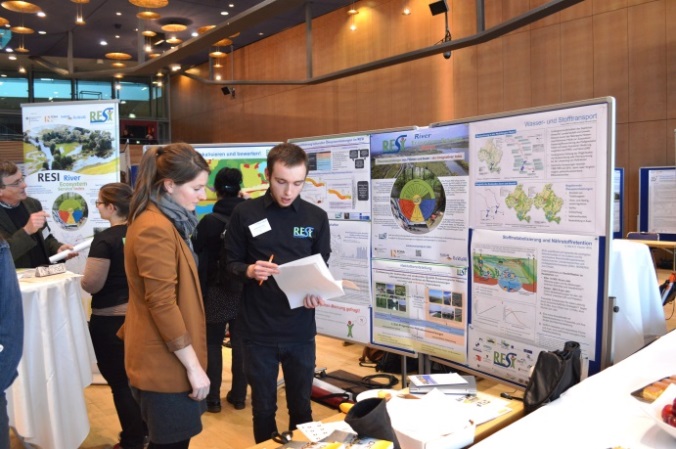8. Stakeholder involvement
Ecosystem services are defined as benefits for citizens and whole societal groups generated by specific ecosystems. Hence, assessment of ecosystem services will attain highest credibility if the opinions of the beneficiaries are considered by transdisciplinary project work. The various stakeholder groups will each have a sectoral view on the set of ecosystem services provided by river and floodplain ecosystems, and hence they will value the various ecosystem services in different ways.
These individual valuations of the ecosystem services of various societal groups represent an important data resource for RESI for the assessment of ecosystem services. Moreover, these data enable to analyze for synergies and antagonisms among the various uses of ecosystem services. This might then support the derivation of management scenarios which maximize synergies and minimize trade-offs. Accordingly, the involvement of the stakeholders represents a constitutive element of the RESI work plan.
First, a road map for stakeholders involvement was outlined, also considering the gaps and recommendation identified in a literature review conducted on previous studies where stakeholders had been involved into the assessment of ecosystem services. Then an online questionnaire was developed to explore how stakeholders perceive riverine ecosystem services. Any reader of this text is warmly welcome to fill in this questionnaire!
Further RESI activities will investigate how different groups of stakeholders value a selected set of river restoration actions, and assess the relationships between anthropogenic pressures and ecosystem services. Together with stakeholders we optimize the integrative ‘River Ecosystem Services Index’ (RESI), especially with regard to their visualization and communication preferences.



